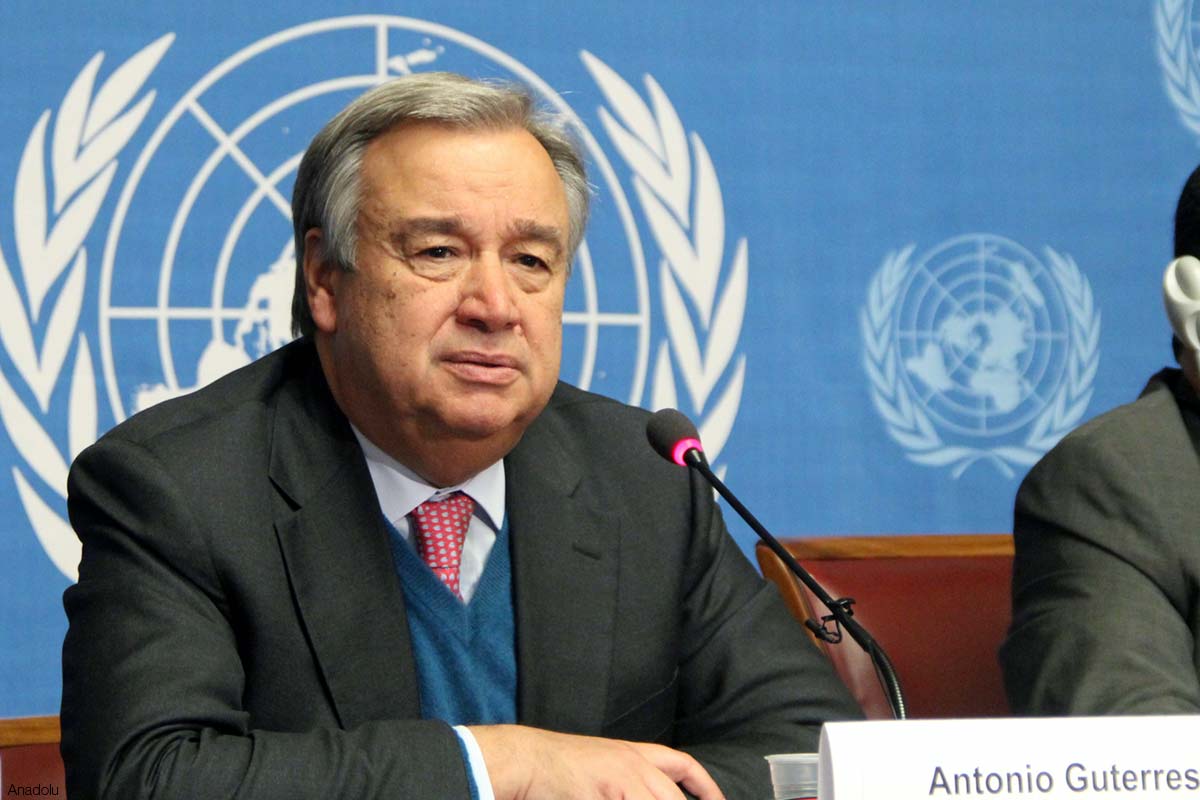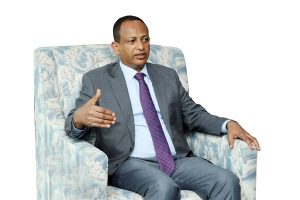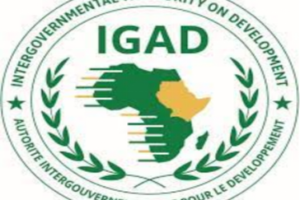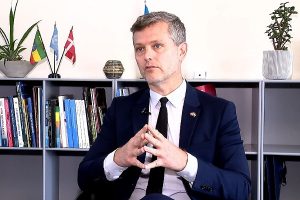
United Nations Secretary General Antonio Guterez recently called on all armed groups across the world to stop their fighting and concentrate on the urgent task of fighting the corona virus pandemic. The Secretary General’s call has enjoyed favorable response in some places while it is still ignored in many other places. The domestic conflicts in Libya, Yemen, Lebanon, Syria and in other parts of the world are still raging every day.
Almost all rebel groups from Africa to Asia and Latin America have not yet put down their arms and tens of millions of people continue to suffer as a result. At the same time the pandemic is making a difficult situation worse by adding fuel to the fire. The Horn of Africa, which is long known to be a war-torn region is no exception. South Sudan and Somalia are still the most fragile countries vulnerable to conflicts that might make the fight against the pandemic much more difficult given the prevailing poverty and the serious breakdowns in their health systems.
The border areas along the western parts of Ethiopia are still safe heavens for gun smugglers, refugees and armed activities. The long border between Ethiopia and Sudan is often porous, giving rise to land use controversies and cross border skirmishes as it was the case last week when Ethiopian militia and Sudanese military allegedly clashed leading to the death of a Sudanese army officer, according to news sources.
The corona virus pandemic has pushed all issues to the back burner as it claims the headlines for 24 hours a day all over the world as well as in Africa. In Nigeria, Boko Haram has not officially suspended military operations and the same can be said about terrorist groups in the Sahel region where people in Mali in particular are still living under difficult circumstances as they are still caught between the hammer of the anti-terrorist forces and the anvil of the terrorist groups. In the Democratic Republic of Congo, which is facing long simmering violence by rebel groups that may have scaled down their operations but have not officially abandoned armed incursions or joined the government in the fight against the pandemic.
In the Horn of Africa, Al Shabab has not officially abandoned terrorist operations in Somalia although its military campaign looks to be suspended or on the wane for the time being. Generally speaking, no rebel group in Africa has officially declared a cease fire or abandoned violence and joined the fight against the pandemic. So, on balance, the call by Antonio Guterez has so far gone largely unheeded.
On the political front, the pandemic has made it impossible to hold regular elections in many countries around the world. In Ethiopia for instance, the pandemic is the main reason for the postponement of the planned general election that was expected to take place sometime in August 2020. If conditions remain unchanged for a long time, this is bound to create a political crisis pitting the incumbent party against the opposition parties. Even at this stage, the pandemic has created what is believed to be a constitutional crisis or election dispute that is not yet resolved by the contestants.
The peace process in South Sudan is still fragile despite recent developments and the formation of what appears to be unity government comprising representatives of both opposition and incumbent parties. A few months ago, political developments in south Sudan were promising indeed. A new dawn of peace, stability and normalization seemed to have dawned. The people of the country hoped that the sufferings of the last few years would be left behind and a new era of normality would be ushered in. A lot of work remains to be done until hope bears the desired fruits.
However, the corona virus pandemic is threatening to undermine the latest hope for a better life in South Sudan whose population is estimated to reach less than 10 million but has more than 200 cases of confirmed infections. A new surge in violence might also lead to humanitarian disaster as the health infrastructure is broken by the last five years of inter-ethnic conflicts that claimed tens of thousands of lives and forced many doctors and health workers to leave the country and go into exile.
The corona virus pandemic has changed the situation in the sense that it intervened before there was a final political settlement or a power sharing arrangement satisfactory to all parties. It has stopped the process at its earliest stage creating political uncertainties. It has not also stopped the flow of South Sudanese refugees into Ethiopia who may at one point or another, be affected by the pandemic in overcrowded refugee camps. According to the latest information, there are more than 400 000 South Sudanese refugees on the other side of the border in Ethiopia. The fragile peace process in South Sudan can be upset at any time by the combined forces of the pandemic and the civil war.
The fate of the Eritrean-Ethiopian border area is not yet sealed with a binding agreement despite recent rapprochement between the two countries. The border along the controversial Badme area is still closed and there is no prospect of opening it soon. The closure of the border may be seen as a positive step as it may stop the spread of the pandemic. It may also have adverse effect such as retarding development cooperation between Ethiopia and Eritrea in the context of the peace process. It may also encourage illegal border crossings between the two countries possibly leading to the undetected spreading of the pandemic.
Somalia is of course the classic case where armed conflict exacerbates the pandemic and victimizes so many people. Given its comparatively smaller population size, Somalia is an east African country where the number of infected people is disproportionately high. With its porous borders and cross-border movements of people in all directions, the situation is bound to get worse in the coming few months. What makes the situation even more worrying is the fact that Al Shabab is using the relative lull in the fighting in order to regroup, reorganize and prepare for eventual attacks in the future.
All terrorist groups tend to disregard the suffering innocent civilians are often forced to endure resulting from conflicts. Their priority is strategic advantage, power and money whatever this might take to achieve, including the sacrifice of human lives. It is unlikely that they respond to the call by the UN General Secretary to stop the hostilities and fight against the pandemic which is a secondary concern for them.
In military parlance, both Somali government forces and Al Shabab terrorists are now locked in strategic stalemate; neither of them having the military upper hand. Government forces control most of the towns while Al Shabab has long retreated to the rural areas where it has the advantage of staging hit and ran operations as well as hide itself from attacks by government forces. Somalia is ten hit by desert locust invasion, famine and also by unexpected floods. Unless peace prevails in the country sooner than later, Somalia may be forced to choose between the deluge and the deep sea.
The terrorist group might use the lull in the fighting to strengthen itself and prepare for future fighting while the absence of administrative and health infrastructures in the rural areas might lead to further expansion of the pandemic as people move in all directions without being tested for the infection. A formal ceasefire between the terrorist group and the government would put an end to the chaos and anarchy that prevails in the country at present and create better condition for the fight against the pandemic.
All disasters come with tragic consequences and some opportunities. The global pandemic too might create an opportunity for a new form of global or regional peace and cooperation by putting an end to senseless fighting among people of the same region and bring them together to fight a common enemy. All countries of the Horn region face the same dilemma of choosing between saving the lives of millions of their compatriots or killing each other in senseless power struggles.
UN Secretary General Antonio Guterez made the plea for peace as a precondition and even a catalyst for a united struggle against the global pandemic. As such, it should be heeded by all armed groups that are fighting one another for various reasons. By the same token governments that are fighting rebel groups need to take steps for the end of hostilities and the creation of a better condition for the fight against the common enemy. The pandemic is not a localized and easily controllable event but a global threat that can only be addressed with joint efforts and resources, from governments, non-state actors and civil society groups in the Horn.
The Ethiopian Herald Sunday Edition June 7 / 2020
BY MULUGETAS GUDETA





